Hudson Institute team announce ‘atlas’ of kids cancers in world first
A revolutionary Melbourne program is offering a lifeline to children with cancer through the use of AI – and it could help more than 400,000 kids globally.
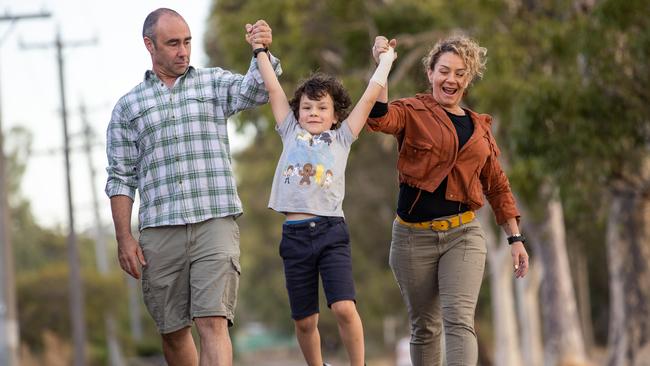
Victoria
Don't miss out on the headlines from Victoria. Followed categories will be added to My News.
Victorian researchers are using revolutionary Artificial Intelligence (AI) technology to lead the world on how best to treat and cure rare and deadly childhood cancers.
The Centre for Cancer Research at the Hudson Institute of Medical Research in Melbourne announced today in the journal Cancer Cellthat it has created the world’s first Childhood Cancer Model Atlas (CCMA).
It is, say experts, one of the most valuable resources available for childhood cancer scientists with the potential to help more than 400,000 children globally.
Professor Ron Firestein, who led the team, says the CCMA is the result of a global partnership of 35 institutes and hospitals coming together to develop new treatments for childhood cancer.
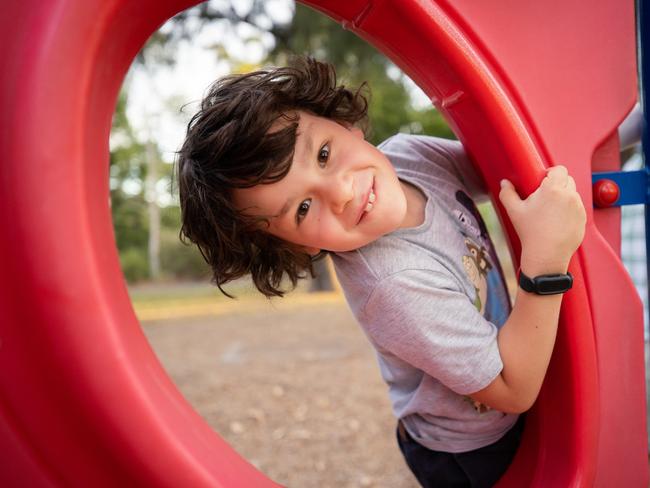
It has, he says, established Melbourne as a global hub for medical researchers looking to cure childhood cancer and will, “save time, save money and save lives”.
The CCMA was created, Professor Firestein says, using a unique collection of high-risk paediatric cancer cell lines donated from children across the world, including Melbourne. These cell lines represent 18 of the most deadly and rare childhood tumours and are, for the first time, located at one site.
Using predictive models and machine learning in the form of AI, the team has used these precious cell lines to develop precision medicine opportunities to treat paediatric brain cancers and sarcomas in children.
Professor Firestein told the Herald Sun the CCMA is available now for every paediatric oncologist and childhood cancer researcher worldwide.
It has its own interactive portal and is the result of seven years of investigation by the team and supported with a $7 million investment by the Children’s Cancer Foundation.
A clinician-scientist, Professor Firestein says this is a lifeline to hundreds of thousands of children and their families.
In February the Herald Sun revealed The Zero Childhood Cancer Program expects to be rolled out by the end of the year to do genetic sequencing on the tumours of around 1000 Australian children diagnosed with cancer each year.
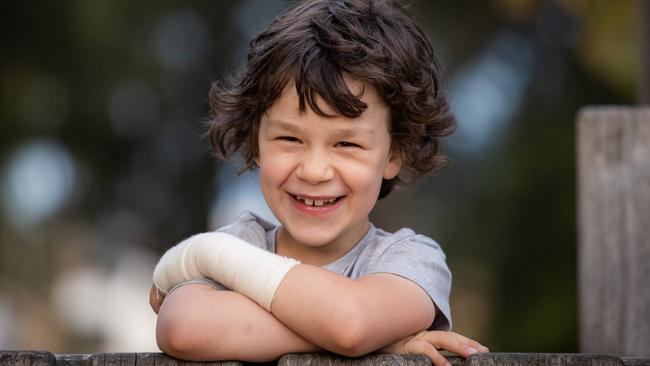
“Sequencing a patient’s tumour is certainly important, and is already being done with programs like Zero, but where CCMA is different, is our ability to comprehensively test the activity of tens of thousands of genetic targets and drugs to identify the next generation of medicine,” Professor Firestein says.
He says AI enables the team to find predictive features that can tell researchers and clinicians not only which therapy or drug can work, but also which patients it will work on.
“That’s really important because it ensures that each patient gets the best possible drug tailored for their cancer type” he says.
Professor Firestein said that with the success of the program, the number of patients analysed by the team has grown exponentially providing a treasure trove of data.
This information is then shared using an online data portal which allows communication between researchers, clinicians and patient advocates and encourages crowdsourcing new drugs and targets.
Professor Firestein says the CCMA enables the real-time sharing of cancer tumour models and data and that it is user-friendly and accessible to anyone.
He says there is a desperate need to find new treatments and cures for the cancers that affect children.
One in five children with cancer do not survive and it remains the leading disease-related cause of death among Australian children.
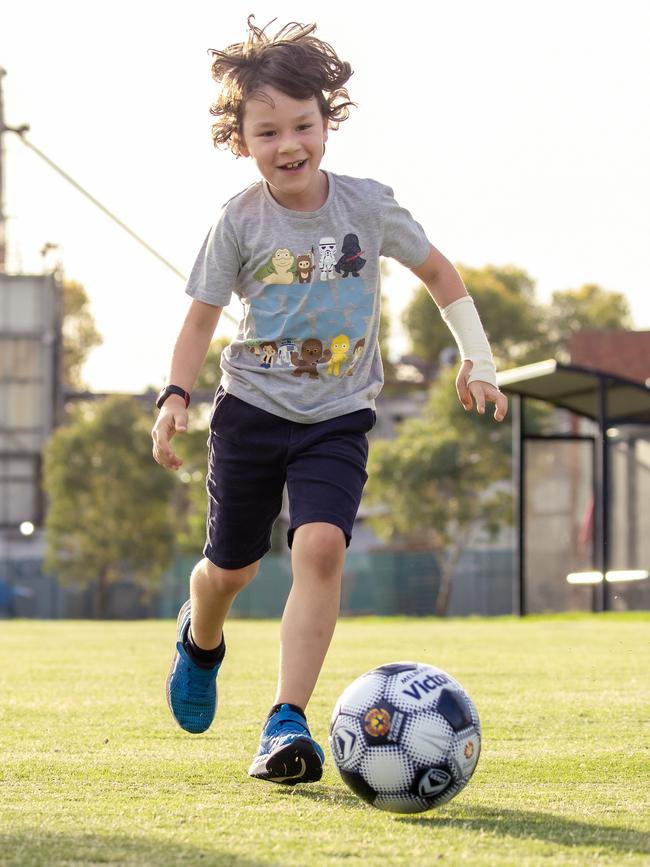
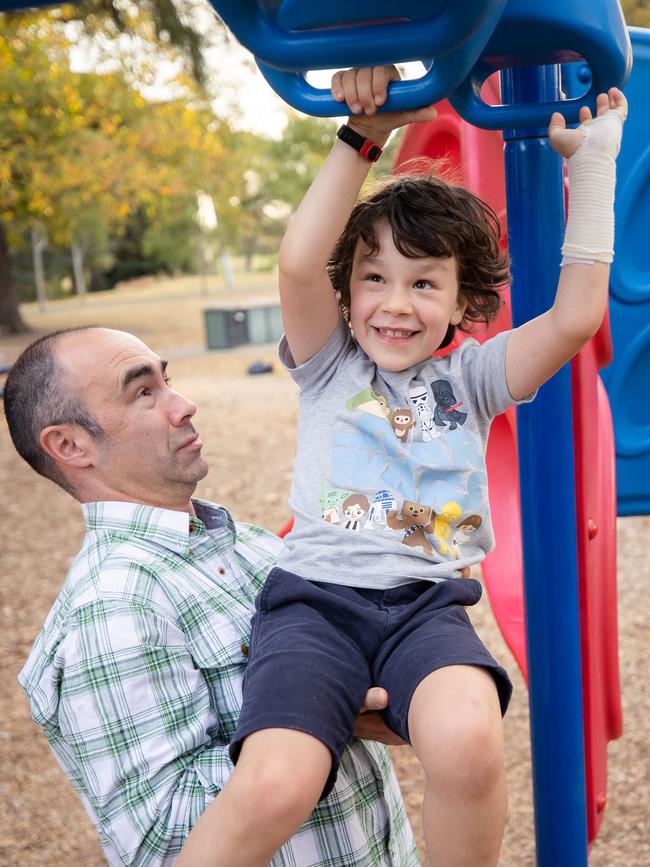
Little Luca holds key to cure
The rare and brutal tumour that invaded Luca Boggia-Hall’s brain five years ago is now helping scientists worldwide to save other children.
The grade two Melbourne student, who is now well, donated samples from the aggressive tumour to research and it is now part of the world’s first Childhood Cancer Model Atlas developed in Melbourne.
His mum Monique says life is something that her only child is now full of, but it has been a rollercoaster.
Luca, 8, was diagnosed with brain cancer just before Christmas in 2018.
The devastating diagnosis came after the then three-year-old had complained of headaches that concerned parents Monique and partner Baden.
Their only child went through brain surgery at the Royal Children’s Hospital, 11 months of chemotherapy and finally 33 consecutive days of radiation at the Peter MacCallum Cancer Centre.
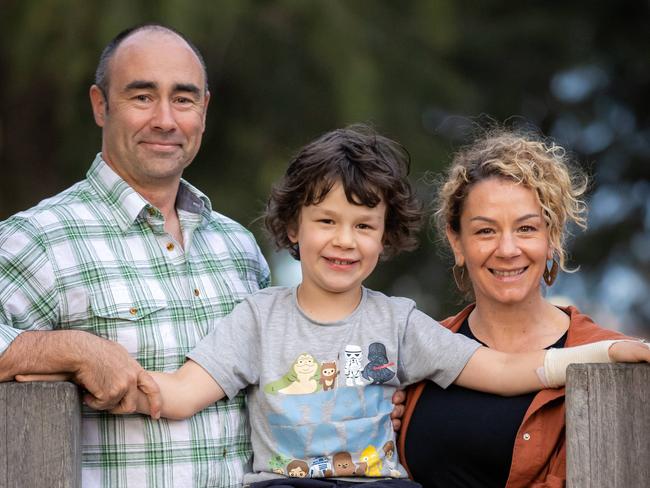
Monique said the family decided to donate the tumour tissue to research through gratitude.
“At the time (of Luca’s diagnosis) our heads were very much full of information and we were incredibly shocked and stressed,” she said.
“Now, having a bit of perspective with time and having these conversations about progress in research for childhood cancers, the feeling is a sense of pride and we are happy to be involved.”
Monique said Luca’s tumour was an anomaly, one that wasn’t behaving like any other tumour.
“We are hoping that with more research, and with the availability of resources like the atlas to enable studies using Luca’s tumour cell lines, in future it becomes text book,” she said.





